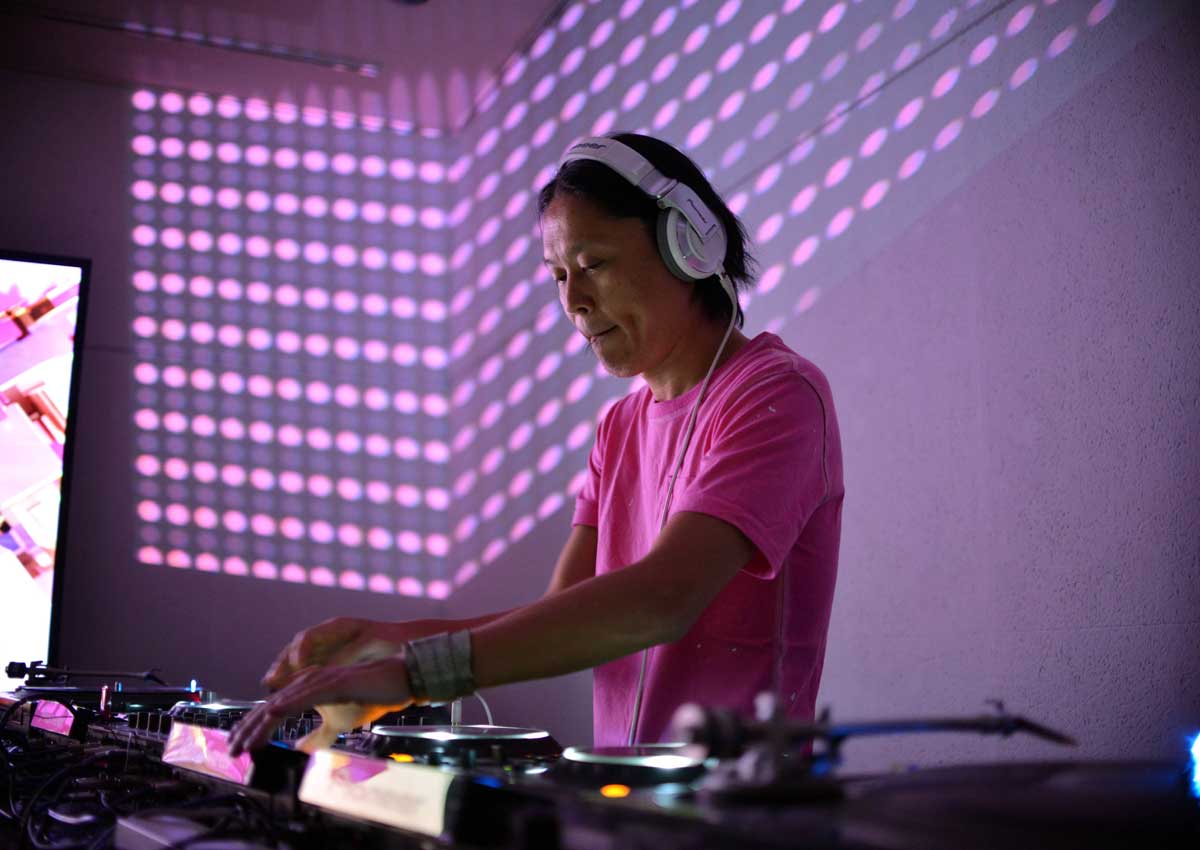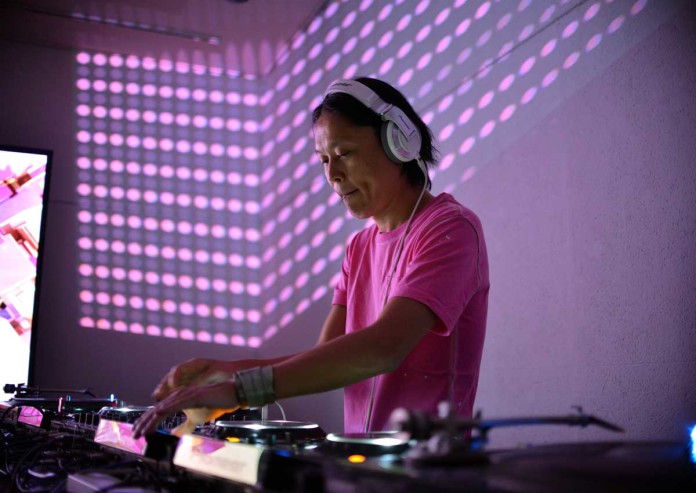Tokyo – Japan’s techno trail-blazer Ken Ishii rocks huge crowds the world over and leads a glamorous, jet-set life – but the superstar DJ insists he’s a “bit of a nerd” at heart.
Ishii, 45, burst onto the dance scene more than 20 years ago and has scooped up MTV awards, composed the theme song for the 1998 Winter Olympics and even appeared on the cover of Newsweek magazine.
But new album “Leaps”, released last week under his alter ego “Flare” and which draws heavily from 1980s influences Kraftwerk and Japan’s Yellow Magic Orchestra, reveals a more introverted side to the Sapporo-born artist.
“Flare is more personal and experimental,” Ishii told AFP in an interview. “It’s like getting a new toy.” But while he feels a sense of liberation, there is also a buzz of nostalgia that accompanies a return to “basics” Ishii experienced during his start in the industry as a producer.
“My earliest music was experimental so it’s like going back to my roots,” he said. “I’m still like a kid when I’m in front of my computer.
“I guess you could say I’m a bit of a nerd when it comes to the creative process of making music.” Ishii’s new 10-track record, which comes 23 years after he cut his first track, is a throwback to the 1980s and marks a subtle departure from his trademark techno voodoo.
Industrial beats combine with squiggly synthesisers and video game bleeps to whisk the listener back in time: imagine Kraftwerk, Depeche Mode and an old Atari game console stuffed into a power blender.
“When I was seven or eight, the first wave of video games like Space Invaders triggered my interest in electronic sounds,” said Ishii, who fondly recalls pinching coins from his dad’s pockets to spend at the video arcade after school.
“The album sort of harks back to what I used to listen to in the 80s,” added Ishii, who became hooked on techno music after discovering Detroit overlords such as Juan Atkins, Derrick May and Kevin Saunderson.
“Electronic music was a big influence, particularly Yellow Magic Orchestra, Kraftwerk and German industrial, new wave stuff.
“But for me Detroit techno was like punk music in the late 70s in London – it was a movement.” Ishii quickly shot to fame after signing to Belgian techno label R&S Records while still at university, tearing up dance floors in Europe before Japan knew what techno music was.
“They brought me to Europe for my first ever gig and it was in front of 30,000 people in Amsterdam,” he recalled. “Nobody knew me, they were all wondering who this Asian kid was.
“I’d only had one warm-up gig before that, in front of about 30 people. They had me come out on stage dressed in all black with these models in sexy ninja costumes.” A No. 1 on the techno chart of British music magazine NME in 1993 was followed in 1996 by an MTV video award for the single “Extra” – both firsts for a Japanese artist.
His seminal album “Jelly Tones” came out in 1995 as his stock soared.
Then the Japanese Olympic committee called, followed by television commercial work, a movie soundtrack and even offers to act.
But at that point, Ishii slammed on the brakes, terminating his record contract and forming his own label in 2002.
“People stopped seeing me as an underground artist because of the commercial success,” he said.
“The record company was pushing me to release hit after hit, to use female singers – stuff that had nothing to do with techno.
“I didn’t want to cross that line, to sell out. I wanted to go back to the underground. I’m an old-school guy.” Ishii has a philosophical attitude towards today’s generation of celebrity DJs who fly in for shows by helicopter and plug in pre-programmed sets they often play for an entire festival season.
“People get into this game now to be pop stars,” said Ishii, who still gets driven to gigs in his manager’s battered Toyota.
“People are buying tickets to watch a guy who’s just standing on stage waving his hands.
“I’ll have a drink with the promoters and fans after a gig, but maybe some DJs now think it’s a waste of time – that more gigs means more money,” he added.
“I’m not bothered about flashy cars. I don’t care how I look when I arrive. I’d still be doing this even if I didn’t make any money.”







